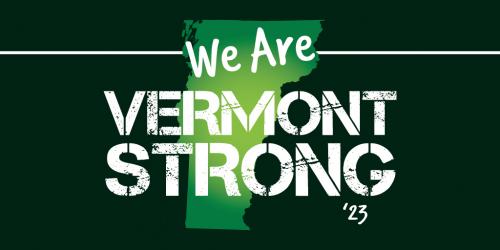Registering a Vehicle in Vermont
To register a vehicle in Vermont, you must be a Vermont resident with a Vermont-issued credential (Driver’s License or Non-Driver Identification card).
OR
If you are a part-time resident, student, or contracted employee, meet one of the following requirements and provide the necessary documentation.
Part-time resident who does not have a Vermont-issued credential:
At least one of the following documents to establish your connection to Vermont.
- Property tax bill
- Lease or Landlord Certificate in the vehicle owner's name
- Utility bill (must list address)
- Homeowners/renters insurance (policy/proof of claim)
Student:
- Student ID from a Vermont Educational Institution (College, University, Trade or Vocational School).
Contractual Employee:
- Provide a completed Vermont Employment Certification (VN-106) OR
- Employment contract with a Vermont Business Entity
Registration
You must obtain a Vermont vehicle registration upon establishing residency in this state. This must be done no longer than 60 days after moving to Vermont, or if your out-of-state vehicle registration expires before the end of these 60 days, you must obtain a Vermont vehicle registration before it expires (whichever occurs first).
Two facts that you should be aware of when registering a vehicle in Vermont:
- All vehicles must have liability insurance coverage in an amount that is not less than the statutory minimum.
- Upon registering your vehicle, you will have 15 days to get it inspected at a Vermont-licensed inspection Station.
To obtain your Vermont vehicle registration, you must provide the following:
- A completed Registration Application Form,
- The title to the vehicle (if the lienholder is holding the title to the vehicle, you (the owner/lessee) must appear in person at one of our DMV locations with the full name and address of the lienholder. You will need to provide your original registration from your previous state. In this situation, only the owner/lessee may proceed with this transaction and only by appearing in person at a DMV office,
- An updated (current) odometer reading,
- Proof of the dollar amount of Purchase and Use or Sales tax paid on the vehicle to any previous state. Must include vehicle and owner information.
- At the time of registration, your vehicle will be assessed using J. D. Power. This value will be used to determine the amount of taxes due. If you have proof of payment of taxes to another state in your name on that vehicle, we will deduct that amount from the taxes due to Vermont. If the taxes paid to the other state are less than those due to the state of Vermont, you will be required to pay the difference.
- Proof of Purchase and Use or Sales Tax paid is not required if you have the vehicle registered/titled in your name in a state that collects tax. You must provide the title or registration in your name.
- No credit is allowed for property or excise tax paid. As a rule of thumb, if the tax paid was deductible per the IRS rule, it is a Personal Property Tax, not a Purchase and Use or Sales Tax.
- Payment of all required fees.
For more information on registration, see dmv.vermont.gov/registrations/new
For more information on tax paid in another state, see dmv.vermont.gov/tax-title/vehicle-taxation/exemptions
License
When a new Vermont Resident applies for a Vermont Driver’s License and possesses a valid out-of-state license or an out-of-state license that has expired for less than three (3) years, an eye examination will be required.
- Bring your valid (or expired less than three years) license from your home state.
- When your Vermont license is issued, the out-of-state license must be surrendered.
- You will need documentation to establish your identity.
For more information on licenses, see dmv.vermont.gov/licenses/new

